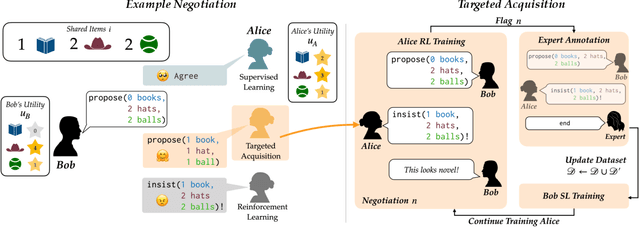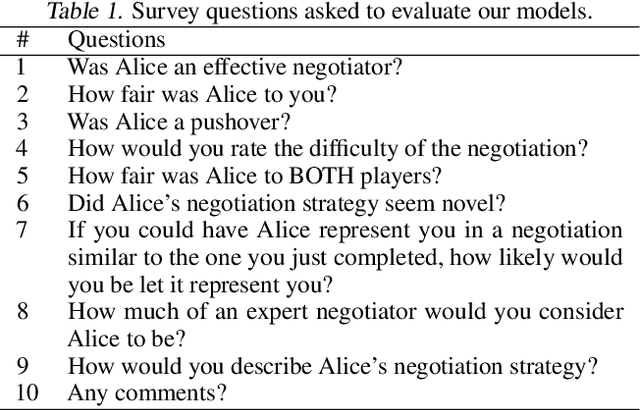Mariano-Florentino Cuellar
Targeted Data Acquisition for Evolving Negotiation Agents
Jun 16, 2021



Abstract:Successful negotiators must learn how to balance optimizing for self-interest and cooperation. Yet current artificial negotiation agents often heavily depend on the quality of the static datasets they were trained on, limiting their capacity to fashion an adaptive response balancing self-interest and cooperation. For this reason, we find that these agents can achieve either high utility or cooperation, but not both. To address this, we introduce a targeted data acquisition framework where we guide the exploration of a reinforcement learning agent using annotations from an expert oracle. The guided exploration incentivizes the learning agent to go beyond its static dataset and develop new negotiation strategies. We show that this enables our agents to obtain higher-reward and more Pareto-optimal solutions when negotiating with both simulated and human partners compared to standard supervised learning and reinforcement learning methods. This trend additionally holds when comparing agents using our targeted data acquisition framework to variants of agents trained with a mix of supervised learning and reinforcement learning, or to agents using tailored reward functions that explicitly optimize for utility and Pareto-optimality.
 Add to Chrome
Add to Chrome Add to Firefox
Add to Firefox Add to Edge
Add to Edge